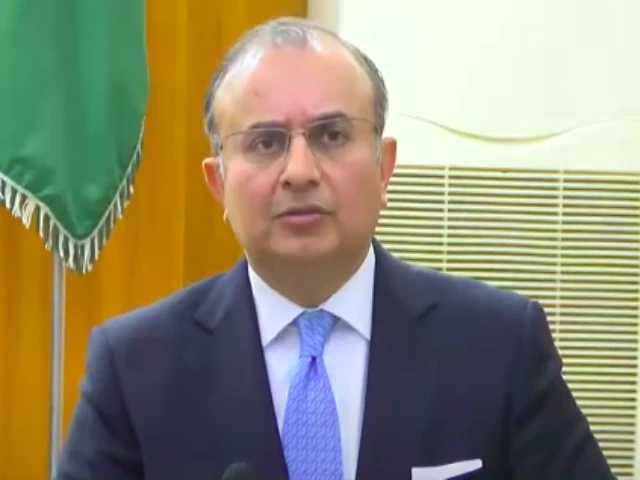The judges recalled that the SC had earlier asserted that any disadvantage arising from being a proclaimed offender
ISLAMABAD:
The Supreme Court has held that being declared a fugitive or fugitive in a criminal case does not, in and of itself, preclude an individual from pursuing civil or service-related remedies.
In a five-page judgment written by Justice Syed Mansoor Ali Shah, the Supreme Court held that continued criminal liability or proclaimed offender status, “however serious it may be, does not result in loss of these indispensable civil rights unless the legislature has expressly imposed such disability.”
Justice Shah warned that inserting such a ban into law would “undermine the integrity of the judiciary and would, in effect, function as a double-edged sword”.
“Depriving a citizen of the right of appeal or legal remedy in matters affecting livelihood, seniority, pension, contractual obligations or financial responsibilities amounts to a denial of access to justice, a fundamental constitutional guarantee enshrined in Articles 4, 9, 10-A and 25.”
The decision was made in response to the question of whether a person’s fugitive status automatically bars them from invoking civil or military jurisdiction. A division bench headed by Justice Shah and comprising Justice Aqeel Ahmad Abbasi heard the case.
The judgment warned that such an exclusion would “not only subvert the principle that no person shall be treated except in accordance with law, but would also divert the function of the court from an instrument of justice to a mechanism of oppression.”
He added that barring civil remedies on this basis “would erode the very safeguards that protect citizens against arbitrariness, weaken public confidence in judicial institutions, and undermine the constitutional promise that justice will be administered fairly, transparently, and without discrimination.”
The court also highlighted how the doctrine could be used by others as a weapon. “The second risk would invite deliberate exploitation by astute and unscrupulous litigants.”
He warned that these individuals could use a separate criminal label as a tactical means to prevent judicial review, shielding their conduct from scrutiny and avoiding accountability for contested actions.
“The practical effect would be to give opportunistic litigants the right to oppress; by invoking inadmissibility, they could extinguish an aggrieved person’s access to remedies affecting their livelihood, services, property, or contractual rights, and thus deny them the procedural protections of notice, hearing, and appeal.”
Such misuse, the ruling noted, would turn the doctrine into “a mask for bad faith litigation tactics that subvert the rule of law and deprive citizens of constitutionally guaranteed due process.”
Justice Shah further held that “criminal liability carries its own evidentiary thresholds and procedural safeguards, which are neither applicable nor determinative for military matters.”
It noted that the dismissal of the petitioners solely on the basis of their alleged flight therefore constitutes a clear misapplication of the law, insofar as it conflates two distinct jurisdictions and deprives the petitioners of the opportunity to adjudicate questions directly relevant to their civil and military rights.
The justices recalled that the Supreme Court had previously held that any disadvantage arising from being a proclaimed offender “generally applies only to the actual case in which the proclamation is issued and does not extend to other matters unrelated to those proceedings.”
Thus, “a declared offender is not, solely because of that status, precluded from bringing or defending a civil action or pursuing an appeal regarding his or her civil rights and obligations.”
The ruling adds that unless a specific law explicitly imposes such a disability, “disqualification cannot be construed implicitly in military jurisprudence.”
Justice Shah traced the origins of the rule barring fugitives from invoking appellate criminal jurisdiction to the “Fugitive Denial Doctrine Developed in the United States,” which evolved as a fair rule in criminal procedure.
He noted that in the United Kingdom, similar consequences arise from “procedural rules and practical necessities,” whereby an appellant who has not surrendered may have his or her appeal dismissed.
Pakistan’s own jurisprudence has followed “the same procedural path”, requiring fugitives to surrender before their criminal appeals are heard.
However, the court emphasized that this logic does not apply to civil or military cases. Under Pakistan’s constitutional framework – based on Articles 4, 9, 10A and 25 – “the right of access to justice cannot be curtailed merely because a person is accused or has absconded into another area of law”.
Therefore, “unless a law expressly provides otherwise or fugitivity manifestly impedes trial, flight in a criminal case cannot extinguish or suspend independent civil or military rights.”




